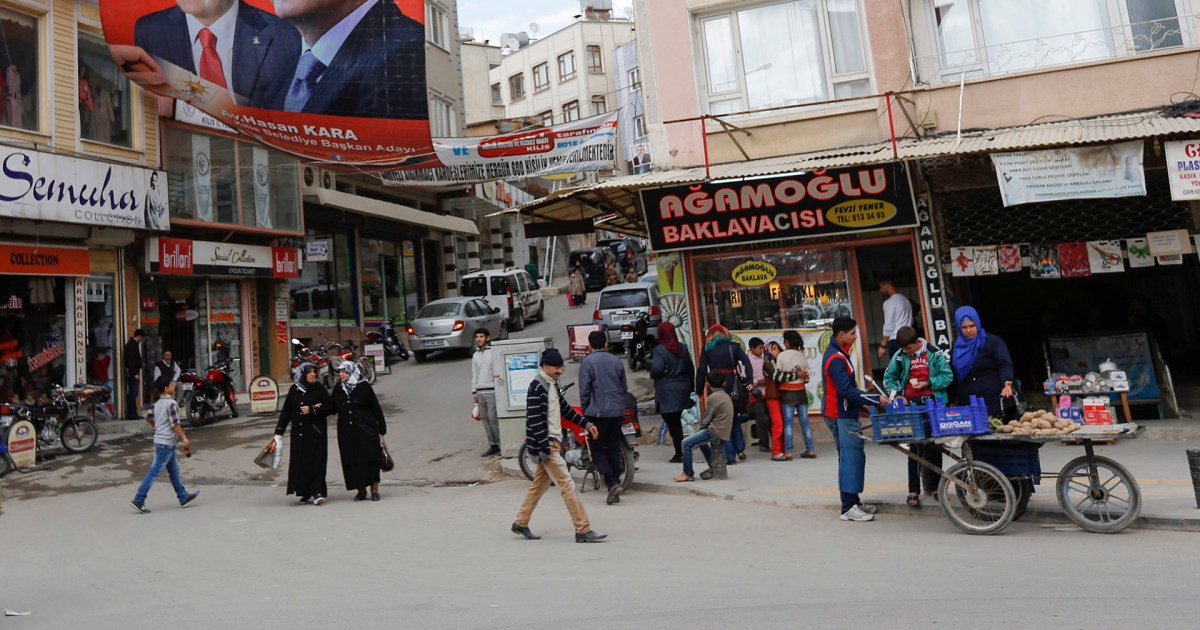Dealt with the
New York Times (
The New York of
Times
) the
situation of
Syrian refugees in Turkey, said that despite the voices come from across the
country ,
demanding their
return to their homeland, the border city has
seen a
major shift thanks to newcomers.
In a
report by the
director of its office in Istanbul, Carlotta Gal, the American newspaper says that Kilis is a city on the Turkish side of the border with Syria, dozing in the arms of olive groves and pistachio trees, and for decades it has remained quiet, isolated and barely prosperous, living on cross-border trade and smuggling.
Population doubled
But 10 years ago, with the outbreak of war in Syria, when refugees fleeing the inferno of fighting began to flock to Kilis, the situation changed completely.
With more than 3.6 million Syrian refugees settled in Turkey, the city's population has doubled to nearly 200,000.
Although the influx of refugees placed a heavy burden on Kilis, it brought dynamism and vitality into the quiet city.
The newspaper quotes a Turkish citizen named Kadir Bekir - who returned to work in his previous profession as a taxi driver after he had lost it with the outbreak of the Syrian war - as saying that their lives in Kilis have changed greatly after the arrival of the Syrians, adding that the refugees "have benefited us a lot in many ways." And we live together."
Erdogan: Treat them as guests
In her report, the journalist explains that Turkish citizens have widely accepted the new arrivals - at least at first sight - after their president, Recep Tayyip Erdogan, urged them to treat Syrians fleeing the war as guests.
But this welcome has faded in many Turkish regions, and the long-term presence of Syrian refugees has become a bitter contentious issue in the political arena.
Opposition parties have begun publicly calling for their repatriation, and Erdogan recently warned against receiving a wave of fleeing Afghan refugees after the Taliban took power there.
Kelis, however, was a clear exception to this "increasingly dangerous" tone that became a "beacon of interracial harmony".
Geographical proximity
The New York Times attributes one of the reasons for the warm welcome to the geographical proximity of Kielce, which is only 48 kilometers from Aleppo, Syria, where the residents of the two cities had ties before the war.
The newspaper also attributes Kilis province's openness to refugees to its ethnic diversity, and its history of unrest and displacement.
Syrian refugees - who now make up almost half of Kilis' population - say they are more welcome in Kilis than in other Turkish cities.
In confirmation of this, the newspaper attributed to a Syrian named Muhammad, "To be honest, we have received a lot of assistance from the Turks here. We always hear the presence of racism here, but I learned Turkish and did not suffer from any problem at all."
However, Syrians - even in Kilis - are cautious when discussing their lives in Turkey, where the police are quick to deport anyone without legal documents.
The newspaper quotes Muhammad as saying that life in Kilis was miserable when they landed there, "Everyone was sleeping by six in the evening...".
Cultural differences
One of the cultural differences that angered the Turks is that the Syrians used to stay up late at night.
However, Syrians are becoming more aware of local customs.
The newspaper's report touched on the cultural changes brought about by the Syrians in Kilis, the first of which was the change in eating habits, as the refugees opened bakeries and restaurants for grilled chicken.
At a time when the Turks used to eat grilled meat, kebabs and meatballs, they added hummus and falafel to their menus, which are favorite foods of the Syrians.
The New York Times notes that refugees in Turkey were subjected to sporadic acts of violence, but Kilis witnessed only one incident in 2015.
Omar al-Haji, an administrator at a branch of an educational charitable association in Kilis, believes that the animosity between the Turks and the Syrians receded after the two sides began to understand each other.
mating
The growing phenomenon of intermarriage between Syrians and Turks is one of the indications of harmony between the components of the city's population.
In this, Nurdan, the wife of the taxi driver Bekir, says that she does not see any difference between the Syrian and the Turkish, "I do not see people as Arabs or Turks, but only as human beings."

